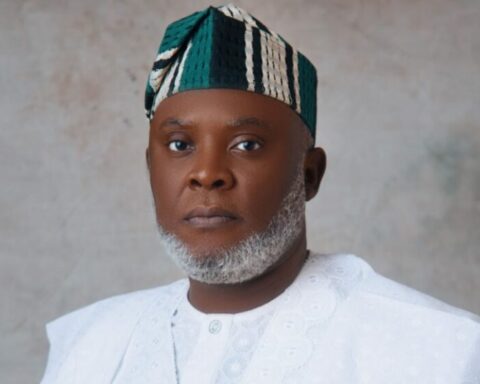Governor Sheriff Oborevwori’s administration in Delta State has basked in applause for ribbon-cuttings and projects that, in truth, are basic duties of government. But beyond the fanfare, ordinary Deltans are asking tougher questions: why is nothing concrete being done to ease the daily economic grind, especially the crippling transport costs that drive up the price of everything?
The governor’s economic team appears blind to the urgency of the moment. Yes, there are long-term projects and grand claims. But in a state where people are paying through their noses just to move from one town to another, the government’s response is falling short. Here’s what Oborevwori is not doing:
1. Failing to Tackle Bad Roads Head-On
The biggest driver of transport costs is obvious: terrible roads. From inner-city routes to federal highways, Delta’s roads are craters on wheels. The much-touted Ughelli–Asaba dualisation limps along, while commuters endure endless breakdowns, detours, and hikes in fares.
What’s missing: A state of emergency on road repairs. Quick palliative fixes on crumbling arteries like the East-West Road, Benin–Warri, and Agbor–Abavo–Obiaruku, among others could ease transport today, not in ten years. Instead, passengers are left to pay for the extra fuel, spare parts, and stress.
2. No Subsidized Mass Transit
Instead of cushioning the blow of fuel hikes, the state has left commuters at the mercy of tricycles and minibuses run purely by market forces, and the uncomplimentary attitude of extortions exerted on transport and tricycle operators.
What’s missing: A subsidized, state-backed bus system. Other states have done it, providing cheap, reliable rides. Delta has not.
3. Ignoring the Waterways
Delta is a riverine state with huge water transport potential. Yet, its creeks and rivers remain untapped as viable transport routes.
What’s missing: Investment in ferries, safe jetties, subsidized routes like Warri–Udu–Osubi, and regulated operators. Water transport could cut fares and decongest roads, but the government has barely scratched the surface.
4. Weak and misfired palliatives
Talk of palliatives has mostly meant photo-ops, not relief. Citizens say the food handouts and credit schemes are tokenistic, politically skewed, and don’t touch the daily cost of movement.
What’s missing:
Fuel vouchers or subsidies for commercial drivers, tied to reduced fares.
Fare rebates for students, civil servants, and low-income earners.
A direct, transparent cushion for transport costs.
5. Neglecting Local Production
Delta’s markets are filled with food imported from other states, making transport costs a key driver of inflation.
What’s missing: Bold investment in agriculture and agro-processing to reduce dependency on imports. If Delta grew and processed more of its food, fewer trucks would need to haul expensive produce from afar — and prices would drop.
6. Tone-deaf communication
While citizens groan, government PR reels out grand projects with long-term timelines. What’s absent is an honest, empathetic economic rescue plan.
What’s missing: Clear, transparent messaging that directly addresses transport costs and daily hardships. Instead, the silence feels like indifference.
The bottom line
Delta’s economic crisis demands urgency, not business-as-usual. Oborevwori’s government has chosen conventional, slow-burn solutions where emergency measures are required. Until roads are patched, fares subsidized, waterways harnessed, and food production boosted, the average commuter will keep paying the price — literally.
Right now, the government’s interventions are too little, too late, leaving Deltans stranded in potholes and poverty.



























